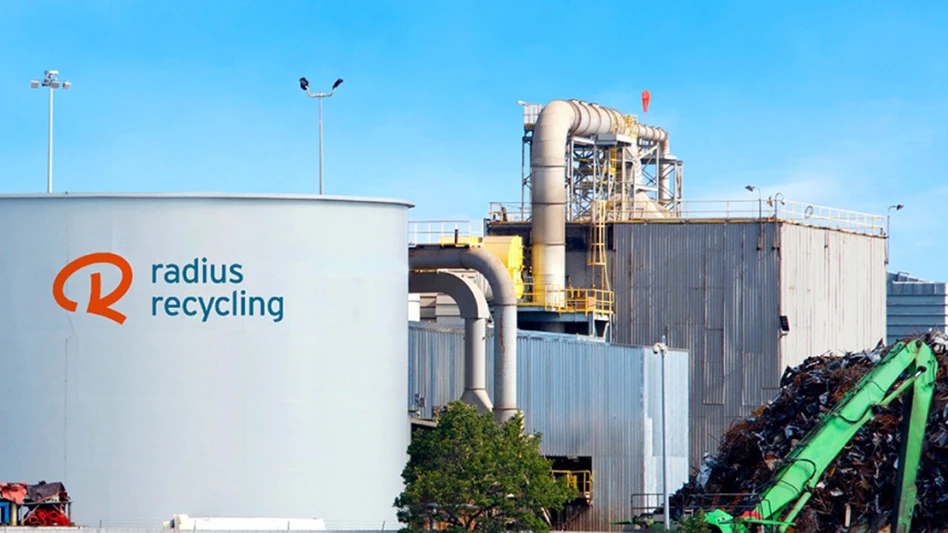
Technology from Bulk Handling Systems (BHS) is helping Thailand-based Indorama Ventures Public Co. Ltd. (IVL) meet its commitments to sustainability and recycling. A new highly automated front-end polyethylene terephthalate (PET) plastic sorting and recycling system, paired with the two other BHS systems in the Indorama portfolio, is leading the way for IVL to meet its ambitious goals in North America. IVL is a large-volume producer and recycler of PET with a truly global footprint, including a growing presence in North America.
“As the world’s largest manufacturer of PET for packaging, IVL has a responsibility to drive the sustainability of our sector,” says Yashovardhan Lohia, the company’s chief sustainability officer. “We take this responsibility seriously.”
BHS is helping IVL reach its PET recycling target in the U.S. at several locations, including the large-scale sorting and reprocessing plant in Athens, Alabama. IVL purchased the former Custom Polymers PET LLC facility in Athens in 2019. It also acquired a former CarbonLite PET recycling facility in Dallas, a reprocessing site that has a BHS rPET sorting system at the front end of its process.
In Athens, Indorama has deepened its reliance on BHS’ integrated technologies by starting up the expanded system in mid-2021. The highly automated system features the latest in BHS screens, NRT optical sorters, Max AI® robotic sorters and advanced controls.

Paul Holman, director of sales - North America at BHS, says IVL is familiar with BHS’ capabilities, with BHS technology already on-site both in Dallas and Athens. He says the new system being added in Athens “triples the plant’s production.”
According to BHS Sales and Application Engineering Manager Chris Parr, the IVL facility in Athens can produce more than 100 million pounds of clean recycled PET (rPET) flake annually.
“The system is controlled by BHS’ proprietary Total Intelligence Platform (TIP), which provides operators with intuitive system control and provides unprecedented insight to key performance indicators,” Parr says. “For example, NRT and Max-AI® technology provide a dozen data points that measure material composition throughout the system. TIP allows an operator to track material quality in both real-time and trending (such as hour-to-hour, shift-to-shift, month-to-month, etc.), providing valuable information to help Indorama Ventures’ operators to optimize performance.”
Eight NRT optical sorters and four BHS Max-AI® robotic sorters allow IVL to produce high-purity rPET flakes free of contaminants. The information-intensive TIP data enables IVL’s managers to stay in touch with the plant’s output and operations at any time of day from anywhere, an important feature for a plant that has the capacity to run 24 hours a day, seven days a week. To IVL’s Lohia, the BHS system is a core part of the company’s sustainability mission.
“Recycling is critical to our sustainable future as it delivers fewer greenhouse gases and less waste,” he says. “IVL believes that the recyclable properties of PET will drive growth in our sector.”
BHS’ Holman says the Indorama system is an excellent example of the enormous benefit obtained by integrating NIR, AI and Controls Automation technologies. “Our integrated optical and AI technologies are key to successful systems such as these. The ability to monitor product quality throughout the system is a game-changer, especially in facilities with stringent purity and performance requirements,” he says.

Bulk Handling Systems
Eugene, Oregon
BulkHandlingSystems.com
581-485-0999
Get curated news on YOUR industry.
Enter your email to receive our newsletters.

Explore the October 2021 Issue
Check out more from this issue and find your next story to read.
Latest from Recycling Today
- ReMA, Germany’s VDM issue joint tariff statement
- Singapore EAF melt shop idled
- LME reports healthy trading volumes in Q1
- Hyundai adds dealer in Wisconsin
- Study finds recycling symbols largely recognizable
- Reworld announces executive leadership transitions
- Longtime paper industry veteran announces retirement
- Aurubis CEO says its metals play vital role






